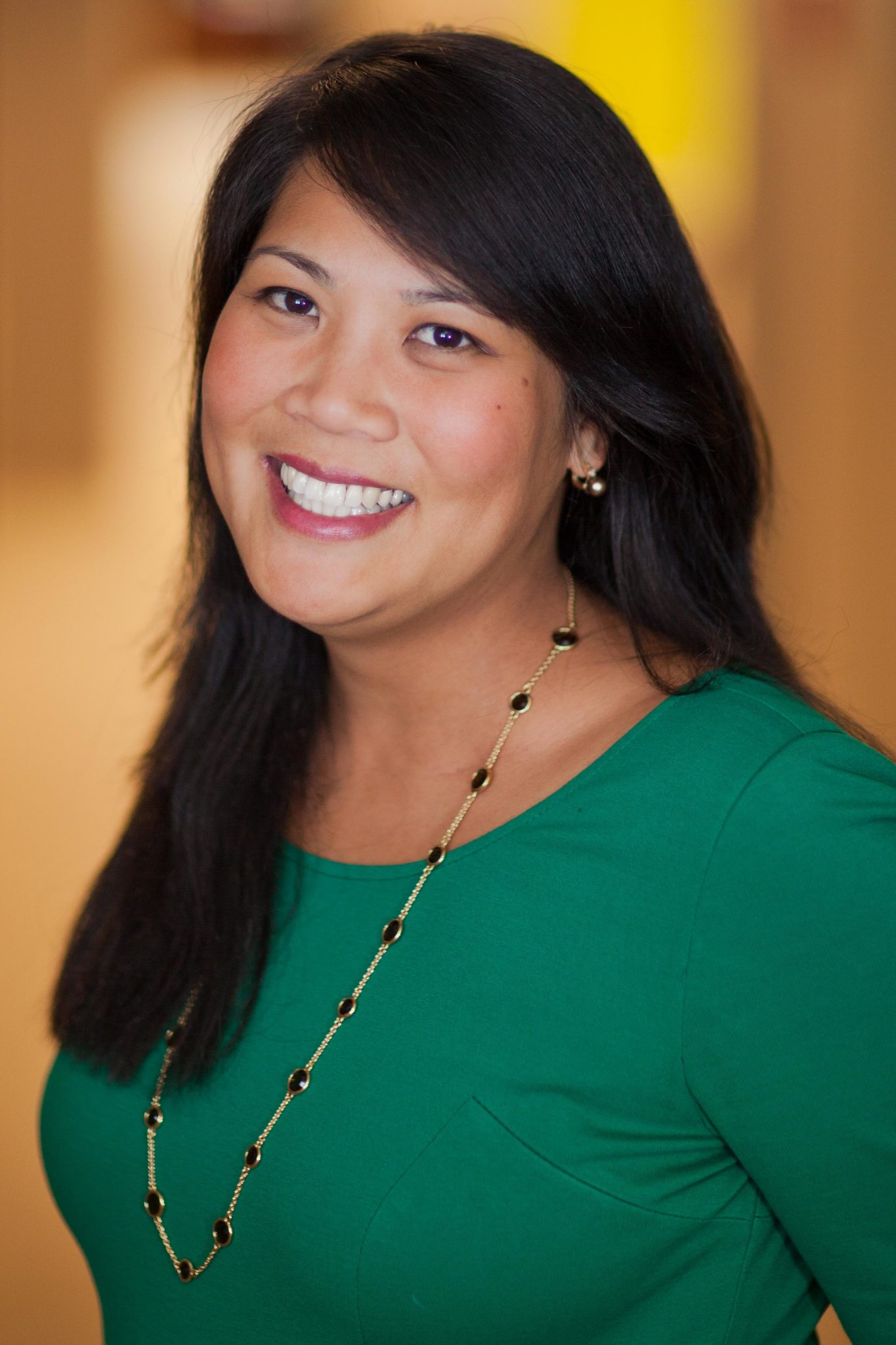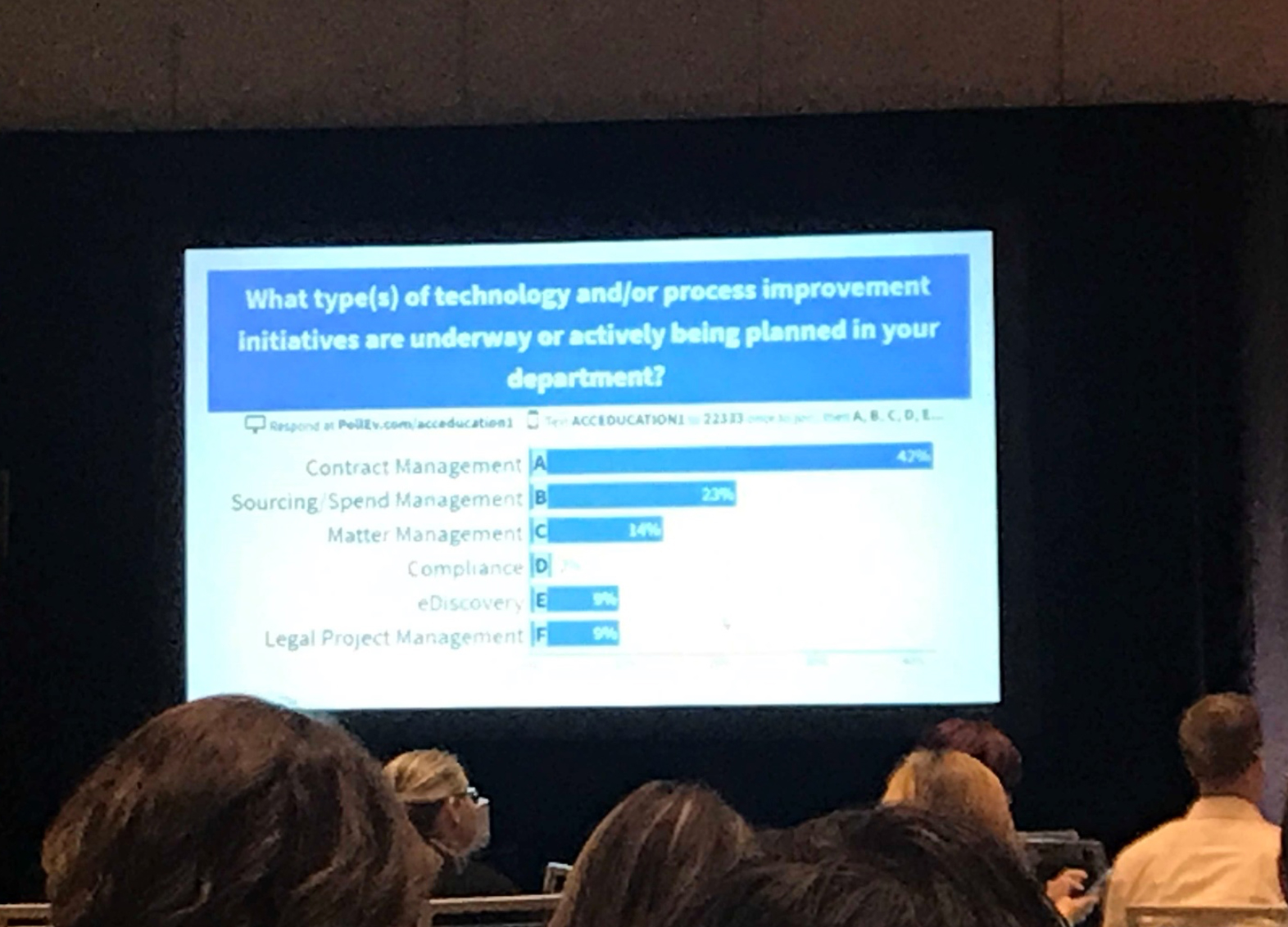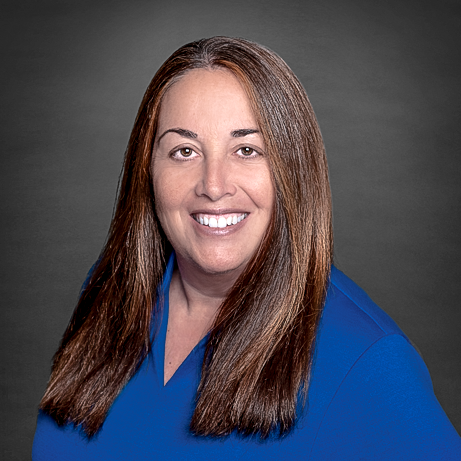ElevateNext 2020 Vision Series: Bernadette Bulacan Interview
December 13, 2019
As we head into June, we are half a year away from 2020 and therefore only six more months of predictions in the ElevateNext 2020 Vision Blog. Perhaps as we close in, the vision for the future is getting clearer. You be the judge, but this installment by rockstar and legaltech evangelist, Bernadette Bulacan is a must-read. Just a hint– “women power!” Both Nicole and Pat say a resounding, “Amen to that!”
~ Nicole Auerbach & Patrick Lamb
Founders, ElevateNext
Interview with Bernadette Bulacan

Bernadette Bulacan
Legal Evangelist, Icertis
Drawing from her experiences as an assistant general counsel, law firm partner and legaltech entrepreneur, Bernadette M. Bulacan is a frequent speaker regarding the digital transformation of the legal profession and specifically the modern legal department. Her expertise includes the adoption of legal technologies, data and performance metrics for legal departments, and other innovative practices that are transforming the practice of law. Bernadette is the Legal Evangelist for Icertis, the recognized leader for enterprise contract management in the cloud. At Icertis, she is charged with identifying trends and innovations affecting corporate legal departments and strengthening the bonds between Icertis and the corporate counsel community. Prior to Icertis, Bernadette held market development leadership roles at Thomson Reuters, in its legal professionals division, and QuantAI, an intellectual property analytics AI company. She was a founding member and Assistant General Counsel of Serengeti Legal Tracker, which was acquired by Thomson Reuters.
Bernadette was a partner at Graham & Dunn, a Seattle law firm, where she was the head of the firm’s Entrepreneur and Emerging Companies/Corporate practice group. She started her legal career advising start-up technology companies with Venture Law Group, a Silicon Valley law firm. She is also a founding member of FLOW (Filipino Lawyers of Washington).
Bernadette received her undergraduate degree from Yale University and her law degree and LL.M (Taxation) from the University of Washington.
Q: What do you predict will be the two biggest changes in the legal profession as of 2025 and why?
I’m keeping my eye on two trends: the next evolution of digital transformation impacting legal departments, and the unique community of innovators who are leading change in the industry.
During my legal and legaltech career, I’ve witnessed firsthand a couple of digital revolutions impacting legal departments. In the early Aughts, it was the introduction of tech to improve the business of law. When we first launched Serengeti Legal Tracker in 2002, our mission was to digitally transform the manual, cumbersome process by which legal departments received and approved their paper invoices. Additionally, once invoices were digitized, we aimed to empower GCs with data concerning their legal spend and their outside counsel. To be expected, it was slow going at first. Then adoption increased after the Great Recession forced GCs ‘to do more with less’ and better manage legal spend. If you attended any legal event or conference in the period immediately following the Great Recession, it felt like every CLE session touched on some best practices to improve relationships with outside counsel (Try a convergence initiative! Use matter budgets and outside counsel score cards! RFP’s are your friend!). And, of course, there were a myriad of software solutions to facilitate this change, many of which are now standard in a legal department’s technology stack, like e-billing.
At Icertis, I now have a front row seat to the next digital transformation impacting legal departments: the establishment of enterprise contract lifecycle management (CLM) as a standard solution in a department’s technology stack. I predict that leading legal departments will re-engineer their contracting processes and rely on technology to automate these paper-based workflows. This revolution shares many qualities of the last: a continued need for legal departments to do more with fewer resources; a hunger by general counsel for additional streams of data to measure value, output, or risk containment; manual, paper-based processes that scream for streamlining and digitization. Other indicia: recent gatherings of legal operations professionals in Minneapolis and Las Vegas offered dedicated tracks and CLE sessions addressing contracting best practices. For instance, during a session entitled “Getting Things Done” at the recent ACC Xchange (and led by Pratik Patel, VP of Innovation at Elevate), more than 40% of the room responded that their legal department was in the process of or actively deploying contract management.

There are some notable differences between this tech revolution and the last I described. First, the transformation with legal spend technology was driven by market forces and accelerated by The Great Recession. Here, the CLM digital transformation will be driven by the seemingly never-ending regulatory change facing enterprises, especially those with global operations. For instance, the pain of identifying paper contracts in connection with GDPR and the laborious processes to revise and amend these agreements is still fresh for many legal departments. Or how about the many financial services institutions who are the midst of repapering commercial loan agreements and clauses in response to the sunset of LIBOR? Another difference: e-billing impacted the business of law. Here, portions of contract lifecycle (like drafting and negotiation) is more closely tied with activities central to an attorney’s practice. Attorneys are protective of their workflows; this will invariably affect adoption rates among corporate counsel.
My second prediction isn’t about what will change our profession’s future, but more focused on who will change it. There’s plenty that has been written about the impact of the Big Four’s entrance into the legal profession and the growing role of innovative law companies, like Elevate, onto the scene. My crystal ball tells me that “who” will change the legal profession will increasingly be women with incredible vision and grit. There’s a reason why three of the first 4 of these 2020 Visionary Blogs were penned by women. Let’s not forget the courageous legaltech founders and entrepreneurs like Felicity Conrad and Kristen Sonday of Paladin, Erin Levine of Hello Divorce, Kunoor Chopra of Elevate, and so many others, who are breaking legal tech’s glass ceiling. And I can’t forget Professor Caitlin Moon who is influencing a future generation of lawyers with her course on innovation and legal design at Vanderbilt Law School. I am not naïve: legaltech, like the rest of the tech industry, suffers from a gender imbalance and representation problem. But I am confident that the future impact and contributions of these women pioneers on the legal profession will be great. Legal crystal ball, don’t fail me now!
Q: What should be the biggest change as of 2025 but won’t be?
Our profession has been called to action, over and over and over again, on the issue of diversity and inclusion, especially for attorneys of color (see the 1999 resolution led by Charles Morgan, then General Counsel of BellSouth Corp. And this 2004 call to action led by then General Counsel Rick Palmore of General Mills. And let’s not forget the more recent January 2019 call to action penned by 170 General Counsels and Chief Legal Officers). And yet, after two decades, all these calls have yielded less than satisfying results. That’s not to diminish the ongoing, well-intentioned hard work by many leaders in law firms and legal departments. But as a female, person of color and attorney who sees others who look like her and come from similar experiences struggling for a seat at the table, change on this front has been painfully slow. Consider the following:
- According to National Association for Law Placement (NALP), minority partners’ representation in Big Law nationally has scarcely increased in the last decade, rising from 6 percent in 2009 to 9.1 percent in 2018.
- Though Asian-Americans have been the largest minority group at major firms for the last 20 years, they represent just over 3 percent of Big Law partners and 3 percent of GCs in the Fortune 500 and 100
- As of 2017, there were 38 African American General Counsels in Fortune 1000 companies, representing just under 4% of the overall number (this statistic has inspired the National Bar Association to launch the Black General Counsel 2025 Initiative, aimed at increasing the number of Black General Counsel (GC/CLO) in large companies (public and private), with an initial focus on increasing the number of GCs in Fortune 1000 companies from 38 to 50 (5%) by the year 2020, and from 50 to 100 (10%) by the year 2025).
I’m optimistic about some of the new initiatives making headway, like the Diversity Lab’s Mansfield Rule, and data-driven conversations about the value of diversity in legal. But I can’t help to think about how tremendous it would be if the totality of these efforts, initiatives and calls to action yielded material advances for attorneys of color, so much so that we truly had something to celebrate in the year 2025 in the name of diversity.
Q: If you could design something that does not exist right now that you think would be of help to you or the industry in 2025, what would it be?
I’ve been ruminating about Ken Grady’s thoughtful response in an earlier 2020 Vision Blog about the biggest challenge facing the legal profession. He highlights the potential impact to our profession when a generation of Baby Boomer lawyers on the cusp of retirement walk out the proverbial door, along with all of their of tacit knowledge (“skills, ideas and experiences that people have in their minds and are, therefore, difficult to access because it is often not codified and may not necessarily be easily expressed”). And in her 2020 Vision Blog, Susan Hackett shed light on “elevator assets:” “folks who carry all relevant knowledge and expertise about how to apply their craft with them in their heads, up and down the elevator, to and from work every day.”
How can we better capture this tacit knowledge and institutionalize these elevator assets? I know that there are SharePoint portals, knowledge management systems, digitized playbooks and contract templates and other high- and low-tech solutions intending to capture and share best practices within a legal team. But I also fear that this is insufficient considering the challenge ahead.
So, my response to this questions in fueled entirely by my Generation X ways and perhaps my youthful overconsumption of science fiction though books, movies and TV: I would like to create some sort of brain control helmet that easily extracts information from its user’s brain, but also imparts to the wearer of such helmet the total sum of knowledge of any person who previously wore it. I imagine it would look like the Brain Wave Analyzer head gear invented by Dr. Emmett Brown (aka Doc Brown) from the Back to the Future movie trilogy or maybe the helmet worn by Dr. Leonard “Bones” McCoy of the USS Starship Enterprise and made famous in “Spock’s Brain,” the premier episode of the third season of Star Trek (surely, this answer reveals my true passion–that is, beyond my obsession for the law and legal tech!).
Indeed, this helmet exists only in imaginations and science fiction. So, in lieu of sticking metal rods into the brains of attorneys to extract and impart knowledge, I’d like to create more URGENCY around this impending challenge. Succession planning should proactively prepare for this generational change. Legal teams must use existing tools to capture the wealth of knowledge while it still exists within the four walls of the legal department or law firm.
Q: If the current you could give advice to the future you about anything (doesn’t have to be law-related), what would it be?
- This is timeless, sage advice that I heard at the recent 2019 CLOC Institute in Las Vegas and really resonated with me as a lawyer, entrepreneur and legaltech evangelist: “Success is failure; and failure is not trying.” This will be Future Me’s daily mantra and rallying cry.
- Take the vacation. Unplug. Be present. Also, you’ll never regret ordering dessert or that second scoop of ice cream. And only that full-fat ice cream; don’t waste your time, taste buds and calories on that low-cal stuff.
Back to Expertise

 Patrick Lamb
Patrick Lamb
